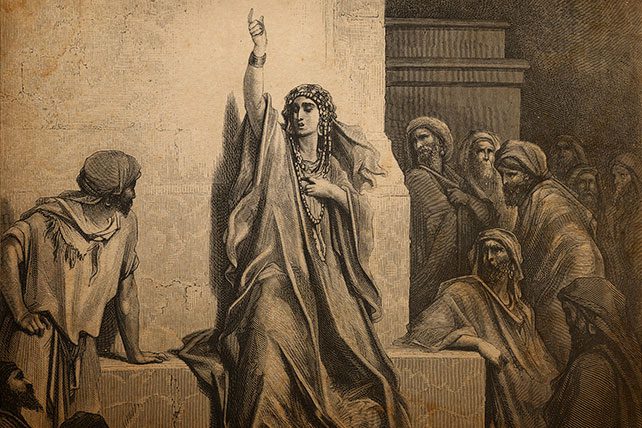Do you know the women preachers in the Bible? In the quest for understanding the roles of women in biblical times, especially in matters of ministry and preaching, it’s pivotal to explore scriptural references and historical contexts. The discussion on women preachers in the Bible is not only relevant but also essential for contemporary religious discourse.
This article aims to dissect instances where women played significant roles within the ministry of Jesus Christ, examine scriptural stances on women preaching, and identify female figures who led and taught within early Christian communities.
The Role of Women in Jesus Christ’s Ministry
The New Testament presents various instances where women were integral to Jesus Christ’s ministry. Notably, the Gospel of John recounts the story of the Ethiopian eunuch (Acts 8:26-40). Although this passage does not directly pertain to female preachers, it illustrates the inclusive nature of Jesus’s ministry, extending beyond gender and ethnicity.
The Gospel of Mark narrates a touching encounter where a woman anointed Jesus with oil and wiped His feet with her hair (Mark 14:3-9). This woman, referred to as a “daughter of Abraham,” symbolizes repentance, worship, and forgiveness, showcasing the deep spiritual roles women played.
Furthermore, at the crucifixion and resurrection of Jesus, women such as Mary Magdalene, Mary of Bethany, and Mary of James were prominently present (Matthew 27:56, Mark 15:40, John 20:1). Their presence at pivotal moments and their role as the first evangelists of the resurrection highlight the significant spiritual roles women held.
RELATED: N.T. Wright: The New Testament Is Clear on Female Preachers
Female Preachers and Leaders in the Bible
The Bible mentions several women who exhibited leadership and teaching roles, often interpreted as forms of preaching:
- Deborah: In the Old Testament, Deborah stands out as a prophetess and a judge of Israel (Judges 4:4-5). Her role involved leadership, military strategy, and spiritual guidance, elements of pastoral responsibility.
- Priscilla: New Testament scriptures reveal Priscilla, alongside her husband Aquila, teaching and correcting Apollos, an eloquent preacher (Acts 18:24-26). This indicates her active role in teaching and spreading Christian doctrines.
- Phoebe: Described as a deacon in the church of Cenchreae (Romans 16:1-2), Phoebe’s role signifies her as a leader and benefactor, possibly engaging in preaching and teaching.
While these instances showcase women in authoritative and spiritual roles, the debate around women’s ordination continues due to passages such as 1 Timothy 2:12. However, interpreting these scriptures requires understanding cultural, historical, and contextual nuances.

